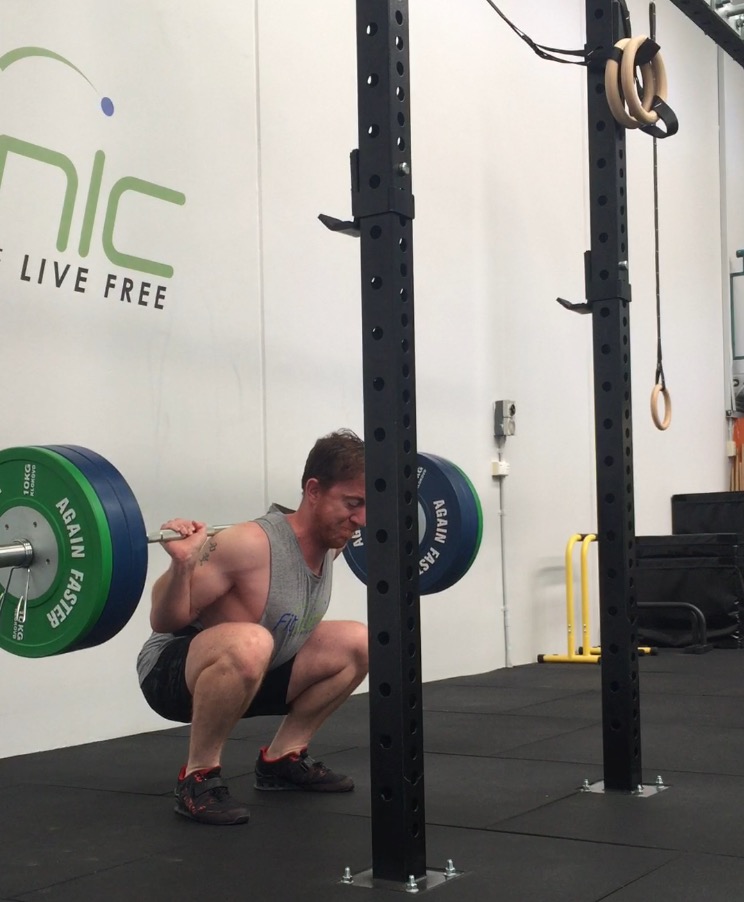Are Deep Squats Bad For The Knees?
If you asked me when I first started as a trainer I might have had a different answer. No, knees going over the toes is not bad…
Why not?
- Highest compressive forces typically happen around 90 degrees knee flexion (thighs parallel to floor). This is, in part due to surface area contact between the femur and patella (thigh bone and knee cap) which is maximal at 90 degrees & also due to the angle of pull changing from the quad as we descend further into the squat.
- Most individuals can handle more weight during partial squats (to say 90 degrees of knee flexion) compared to a maximal squat (deep squat). If forces on the knee are greatest at 90 degrees of knee flexion then both squat variations are going to (or through) the most stressful portion of the lift. Therefore if the partial squatter has more weight then theoretically the person doing partial squats will have higher forces than doing full squats.
- Another major thing to keep in mind is that our bodies adapt to the stimulus that we place on it. What this means is that exposing your body to loaded deep squatting will promote change in your body. Muscular growth and improvements in strength that occur with training the squat, but there are also changes within the joint itself, both with improvements in cartilage thickness and strength of tendons & ligaments.
- Weightlifters have been shown to have higher cartilage thickness then non-weightlifters. The thought here is that with squatting there are anabolic, biochemical and structural adaptations of the cartilage tissue, causing increased mechanical stress tolerance and hence protective effects against degenerative changes (positive adaptations).
- Olympic lifters in general have a very low risk of injury compared to other sports (basketball, track and field, football and gymnastics).
- Deep squats loaded or not, do not reach stress levels (force to ACL & PCL) to cause damage and do not cause knee ligament stability issues (Weightlifters generally have enhanced knee stability). The stress of deep squatting creates adaptive positive changes in thickness and strength of ligaments and tensile strength of patellar and quad tendons (resilience).
- Keep in mind that squatting with good technique is an important factor to protect the knees and potentially improve knee joint health.
- Your body adapts to what you do, so if you deep squat with good technique, your body is likely to provide structural and physiological improvements to respond to the demands. If anything, when done correctly, it’s more protective than degenerative.
Also, check out Part 1: Are The Knees Going Over Your Toes When Squatting Bad?
Aaron King
Exercise Physiolgist
Fit Clinic


1 replies to Are Deep Squats Bad For The Knees?
Comments are closed.